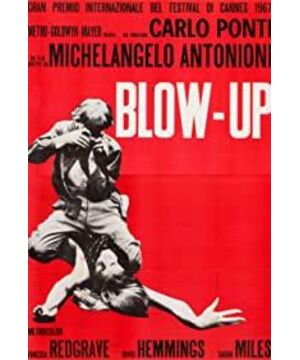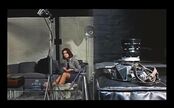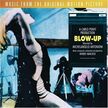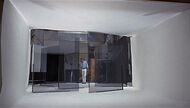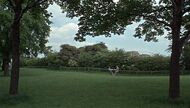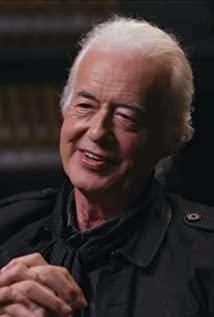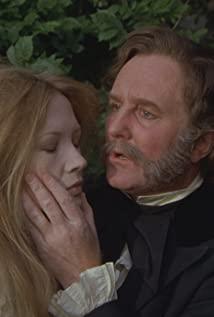The film tells the story of photographer Thomas who accidentally took a series of pictures of Jane who was dating her boyfriend in the park. Unexpectedly, Jane tried her best to get back the negatives. Driven by curiosity, Thomas kept the negatives, and in the process of developing the photos and enlarging them, Thomas discovered a murder. Later, he personally went to the park again in the middle of the night, and indeed found a body, confirming his speculation. It is a pity that he told his friends, but no one believed him, and the next morning, when he went to the park again to look for evidence, the body was long gone. Seeing this, you may think that this is a suspense film, but at the end of the film, director Antonioni brings us a philosophical reflection on existence and non-existence with a seemingly empty tennis match.
Since there have been too many discussions on the Internet about the "existence and non-existence" derived from the Void Tennis Tournament, and I have made it clear what I have to say about this part, now I would like to talk more about what is shown in the video. "True Loneliness".
For this, we can learn a thing or two from a conversation with a female friend (F) after Thomas (T) went to the park for the first time to find the body:
T "I saw a man killed this morning."
F "Where?"
T "Shot. In some sort of park."
F "Are you sure?"
T "He's still there." (Thomas saw it with his own eyes, but no one knew about it)
F "Who was he?"
T "Someone."
F " How did it happen?"
(Bill is a painter who appeared earlier in the film) Thomas knew nothing about the details of the murder, and he could not share the body he had seen with his own eyes. The only evidence is the photo that has been magnified dozens of times, but in the eyes of others, it is no different from a modern painting—the credibility is extremely low, and it is more like Thomas' imagination. In order to prove his idea, Thomas took a camera to the park the next morning, intending to take pictures of the evidence, but the body was no longer there. Later, with lost footing, Thomas strolled to the tennis court near the park and met a group of crazy young people, two of whom were playing a game of tennis without tennis and rackets on the court, plus the onlookers of others (and photography The movement of the virtual tennis ball with the teacher's camera), Thomas seemed to really see a ball game, so that he finally helped the two pick up the "tennis" that had fallen off the court and threw it back on the court, and then the clips really appeared. The sound of hitting a tennis ball. In these two episodes, the director used Thomas' experience and a tennis game played by everyone to create a contrast between "one person's powerlessness" and "the pressure of everyone", as well as a contrast between "existence" and "nothingness". Just like another part of the film, the crowd watched the Yardbirds perform rock and roll with a dull expression. If this was not the way people generally saw rock music in the 1960s, I would interpret this as a lack of personal will and watching in the atmosphere of the group. A performance that does not know the nature of the facts. This kind of spiritual director later used the clip of everyone looting the broken guitar handle to strengthen it. Though Thomas eventually grabbed it, he dropped it when he left the venue. Because the guitar handle at this time has lost its value when there is no atmosphere of collective competition.
Even today, 50 years later, this loss in the collective still applies. Examples are omitted here, especially in this sensitive place, at this sensitive moment. But no matter in which era, there are still too many people who lack independent thinking, so they are easily led by the nose. But how many people like Thomas can "wake up alone" when "everyone is drunk"? And how many can bear this kind of loneliness? So Thomas still picked up the non-existent tennis ball at the end of the film, Throwing it back into the arena, I chose to get myself drunk, after all, it was more enjoyable this way.
View more about Blow-Up reviews


